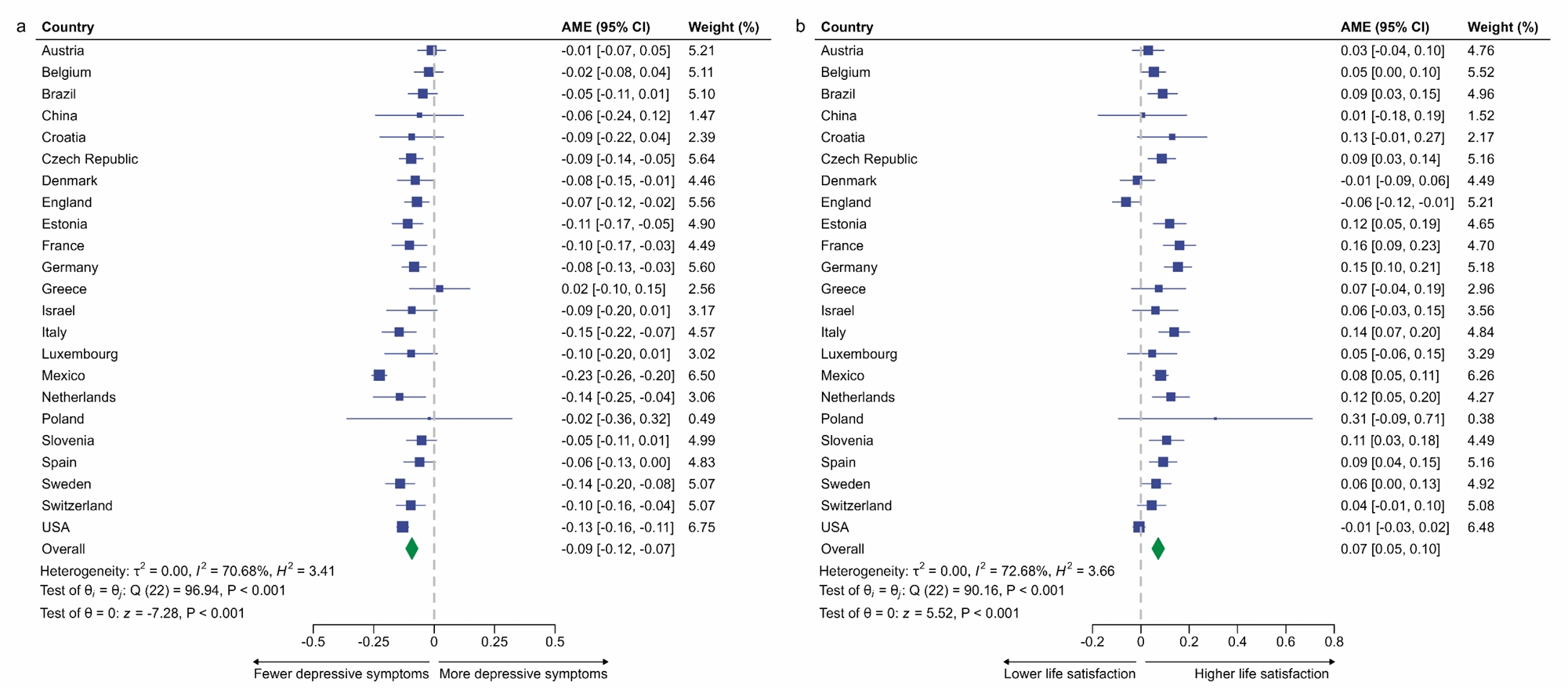20 November 2024
A research team from the Department of Pharmacology and Pharmacy at the LKS Faculty of Medicine of the University of Hong Kong (HKUMed) has found that internet use is linked to better mental health among adults aged 50 or older across 23 countries. The findings revealed that those who engage online report fewer depressive symptoms, higher life satisfaction and better self-reported health. The researchers call for tailored interventions that utilise internet connectivity to improve overall mental health in middle-aged and older populations, taking into account the genetic, sociodemographic and behavioural characteristics of older adults. The study was recently published in Nature Human Behaviour (link to publication).
Background
Mental health problems have become a global public health concern among middle-aged and older adults. According to the 2019 Global Burden of Diseases, Injuries, and Risk Factors Study, approximately 14% of individuals aged 55 or older experienced mental disorders, contributing to an estimated 2.7% of disability-adjusted life years (DALYs) for this demographic worldwide.
With the rapidly ageing population and increased mental health challenges exacerbated by the COVID-19 pandemic and the ongoing cost-of-living crisis, understanding the social determinants of mental health is essential. Internet use emerged as a vital positive factor, especially during the pandemic. However, evidence on the relationship between internet use and mental health among older adults across countries is limited and inconsistent.
Research methods and findings
The research team analysed data from six longitudinal ageing cohorts involving over 87,000 adults aged 50 or older in 23 high- and middle-income countries, like the US, the UK and China, to study the impact of internet use on mental health. The results showed that internet use is correlated with lower depressive symptoms, higher life satisfaction, and better self-reported health among individuals in these countries. However, the extent of these benefits varied among different demographic groups, influenced by genetic, sociodemographic and behavioural factors. The study also revealed that more frequent internet use was correlated with improved mental health.
Significance of the study
The findings have important implications for public health policies and practices in promoting mental health in later life using the internet. The study demonstrates that using the internet is linked to better mental health for older adults in various countries, highlighting that internet use is a potential solution for tackling mental health issues, particularly in middle-income countries like China, where professional mental health services might not be easily accessible in many areas.
The internet provides various services and products that are helpful for mental well-being, such as online shopping, e-learning, social networking and digital health resources, which help older adults stay connected and engaged. However, the study emphasised that there is no one-size-fits-all solution. The most effective approach is tailoring mental health programmes to individual needs, taking into account genetic, sociodemographic and behavioural factors.
Professor Zhang Qingpeng, from the Department of Pharmacology and Pharmacy at HKUMed and HKU Musketeers Foundation Institute of Data Science, who led the study, said, ‘For people in later life, who often face mobility and activity restrictions, internet use offers a valuable opportunity and an alternative for accessing health-related information. It also provides an important channel for social connections and online entertainment, which help alleviate feelings of loneliness, maintain social connections and enhance the overall quality of life, thus positively impacting their mental health.’
Another initiative: Harnessing AI for smart and personalised cancer therapy
In a related initiative, Professor Zhang's team has leveraged medical informatics and AI in medicine to revolutionise cancer therapy. Their innovative approach involves constructing mathematical models of the tumour immune microenvironment (TIME) to analyse the co-evolution of various types of immune cells and cancer cells. This groundwork enables the development of advanced AI techniques tailored for optimal therapy for individual patients.
In recent publications, Professor Zhang's team proposed a series of novel mathematical models to characterise TIME dynamics in individual patients. They also developed deep reinforcement learning algorithms to identify the optimal drug administration policy for individual cancer patients by ‘steering’ the evolution of cancer cells for adaptive therapy and ‘turning’ cold tumours into hot tumours for immunotherapy. Simulations with clinical trial data showed that their methods significantly extend progression-free survival and drug response, while reducing drug dosage, providing a groundbreaking step in personalised adaptive therapy for various types of cancer. The findings were published in the journal Briefings in Bioinformatics [Link to publication].
Research team behind the cross-country internet use analysis
The study was led by Professor Zhang Qingpeng, Associate Professor in the Department of Pharmacology and Pharmacy, HKUMed, and the HKU Musketeers Foundation Institute of Data Science. Other research members included PhD candidate Yan Luo, from the Department of Data Science, The City University of Hong Kong, Professor Paul Yip Siu-fai, Chair Professor (Population Health) in the Department of Social Work and Social Administration, Faculty of Social Sciences, HKU, and the HKJC Centre for Suicide Research and Prevention. The research was supported by the National Natural Science Foundation of China.
Media enquiries
Please contact LKS Faculty of Medicine of The University of Hong Kong by email (medmedia@hku.hk).



Follow HKUMed